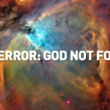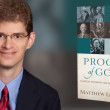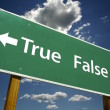Answering Stephen Colbert’s Favorite Atheist Physicist
by Trent Horn
Filed under Atheism, Christianity and Science, Cosmology

In a book that was released a few days ago, Sean Carroll, theoretical physicist, critic of religion, and former guest of The Colbert Report, presents what he calls The Big Picture. Neil deGrasse Tyson says the book “weav[es] the threads of astronomy, physics, chemistry, biology, and philosophy into a seamless narrative tapestry. Sean Carroll enthralls us with what we’ve figured out in the universe and humbles us with what we don’t yet understand. Yet in the end, it’s the meaning... Read More
The Ultimate Jeopardy Question
by Dr. Chad Engelland
Filed under Cosmology, The Existence of God

“Why is there something rather than nothing?” In The Grand Design (2010), Stephen Hawking made headlines by denying the need for God to get matter to jump into being; the law of gravity was enough to do it. Then, Lawrence Krauss created a Youtube sensation and book called, A Universe from Nothing: Why There Is Something Rather than Nothing (2012), that made the same case, including an afterward by Richard Dawkins who heralded it as a death blow to the last proof for the existence of... Read More
Why Richard Dawkins Was Simply Wrong in His “Reason Rally” Speech
by Trent Horn
Filed under New Atheists

On June 4, a few thousand atheists gathered at the Lincoln Memorial in Washington, D.C., for an event they dubbed the “Reason Rally.” Due to health reasons, Richard Dawkins could not be there in person to address the audience, but he did send a video message, the transcript of which has been passed around via atheist blogs. In it, Dawkins highlights how atheists are mistreated in the U.S., especially when religious people ask them the incredibly insensitive question “What... Read More
10 Keys on Faith and Science for Christians and Atheists
by Dr. Stacy Trasancos
Filed under Christianity and Science

On one hand, there are marvelous discourses in institutions of higher learning about the ways theology illuminates scientific ideas and, likewise, how science deepens faith. Theologians, philosophers, and scientists come together and talk, even if everyone is not a person of faith. On the other hand, the public presentation of faith and science, mostly on the internet, is a tale of incessant conflict because anyone can pose as an expert on religion or science, despite being nonreligious... Read More
How to Prove that God Doesn’t Exist
by Matt Nelson
Filed under The Existence of God

There are a couple things I can appreciate about the “Who designed the Designer?” argument. Although it is rooted in a caricature of the kalam cosmological argument’s first premise ("Whatever begins to exist has a cause"), it is a positive argument for atheism, and it does attempt to deal with the God hypothesis in the only arena where God’s existence may be decisively confirmed or refuted: the arena of philosophy. The God defended by Christian theists is a transcendent,... Read More
Proofs of God: An Interview with Dr. Matthew Levering
by Brandon Vogt
Filed under Interviews, The Existence of God

In his newest book, Proofs of God: Classical Arguments from Tertullian to Barth (Baker Academic, 2016), leading theologian Matthew Levering presents a thoroughgoing critical survey of the proofs of God's existence for readers interested in traditional Christian responses to the problem of atheism. Beginning with Tertullian and ending with Karl Barth, Levering covers twenty-one theologians and philosophers from the early church to the modern period, examining how they answered the critics... Read More
How Do You Know You’re Not in the Matrix?
by Karlo Broussard
Filed under Man

At the heart of the philosophy of Aristotle and St. Thomas Aquinas is the idea that we come into contact with reality through the senses. But what if our senses are not a reliable source? Perhaps our senses are deceiving us, and everything we perceive isn’t real but is merely an illusion like in the movie The Matrix. Descartes This skepticism of sense knowledge was part of René Descartes’s methodic doubt, which many radical skeptics have adopted. Descartes argued: Whatever I have... Read More
Do Theological Claims Need to be Falsifiable?
by Dr. Edward Feser
Filed under Belief, Christianity and Science

Antony Flew’s famous 1950 article “Theology and Falsification” posed what came to be known as the “falsificationist challenge” to theology. A claim is falsifiable when it is empirically testable—that is to say, when it makes predictions about what will be observed under such-and-such circumstances such that, if the predictions don’t pan out, the claim is thereby shown to be false. The idea that a genuinely scientific claim must be falsifiable had already been given currency... Read More
Why Miracles Are Not Incompatible with Science
by Karlo Broussard
Filed under Christianity and Science

Skeptics argue that miracles are impossible because the laws of nature are necessary. A miracle, they argue, involves a violation of a law of nature. But the laws of nature cannot be violated. Therefore, miracles must be impossible. One modern skeptic of repute who argues this is Richard Dawkins. In his book The God Delusion, he says, “[M]iracles, by definition, violate the principles of science” (83). Dawkins and other modern skeptics derive this argument from philosophers in the... Read More
What Constitutes a Miracle?
by Karlo Broussard
Filed under God

After reading some exchanges on Facebook that were inspired by my recent blog post concerning miracles, it became clear I need to explain exactly what a miracle is. A miracle is defined as an extraordinary sensible effect wrought by God that surpasses the power and order of created nature. That’s a mouthful, so let’s unpack it. There are five aspects to the definition. Aspect #1: Exclusively attributable to divine power Only God can be the cause of a miracle. This excludes any sort... Read More






